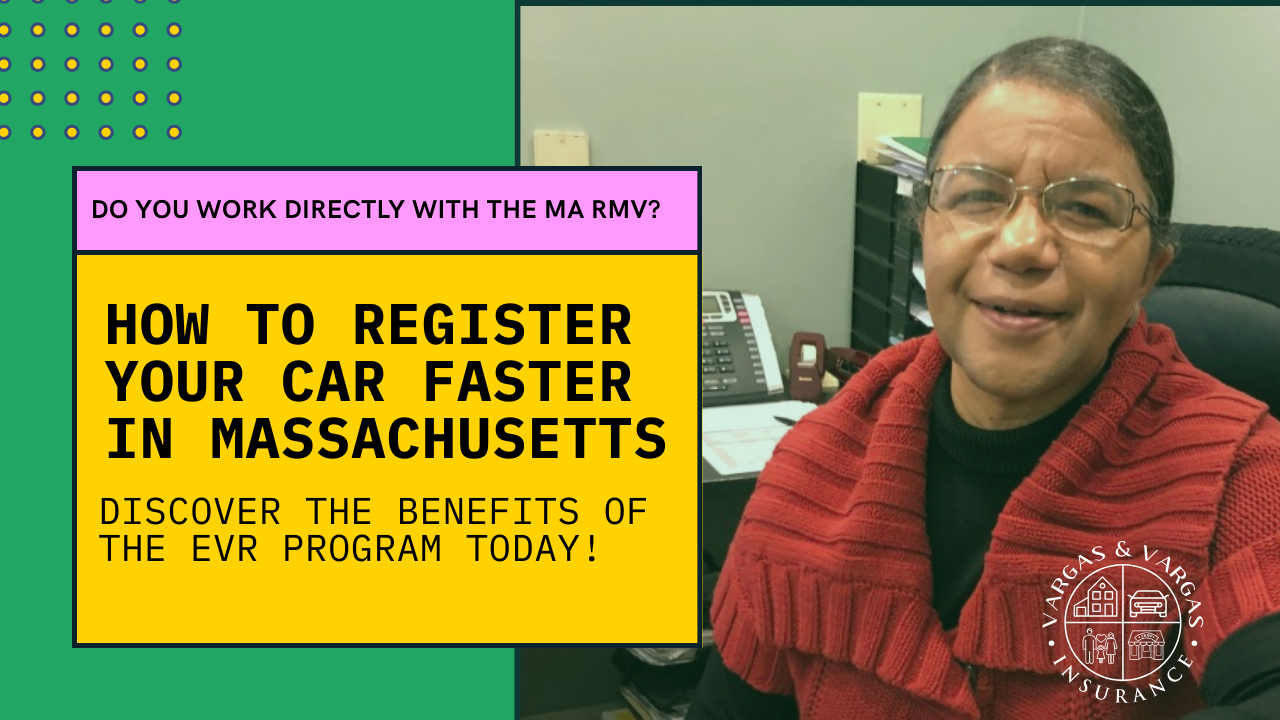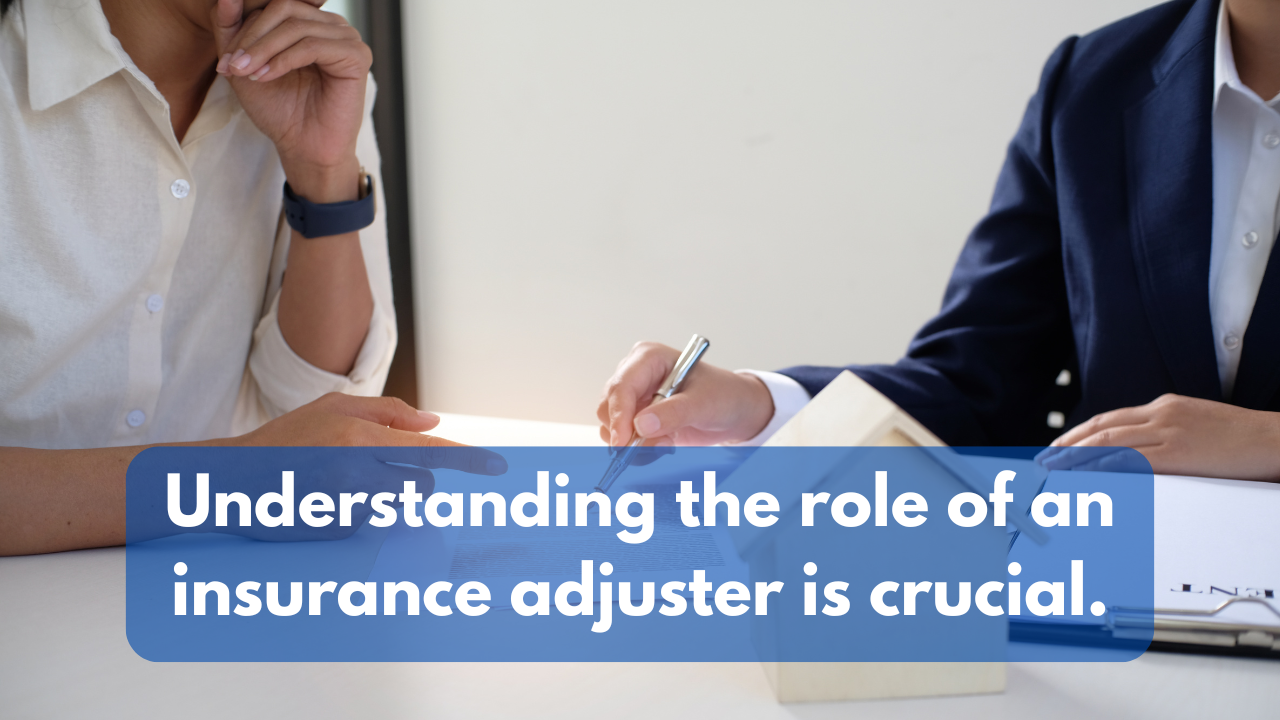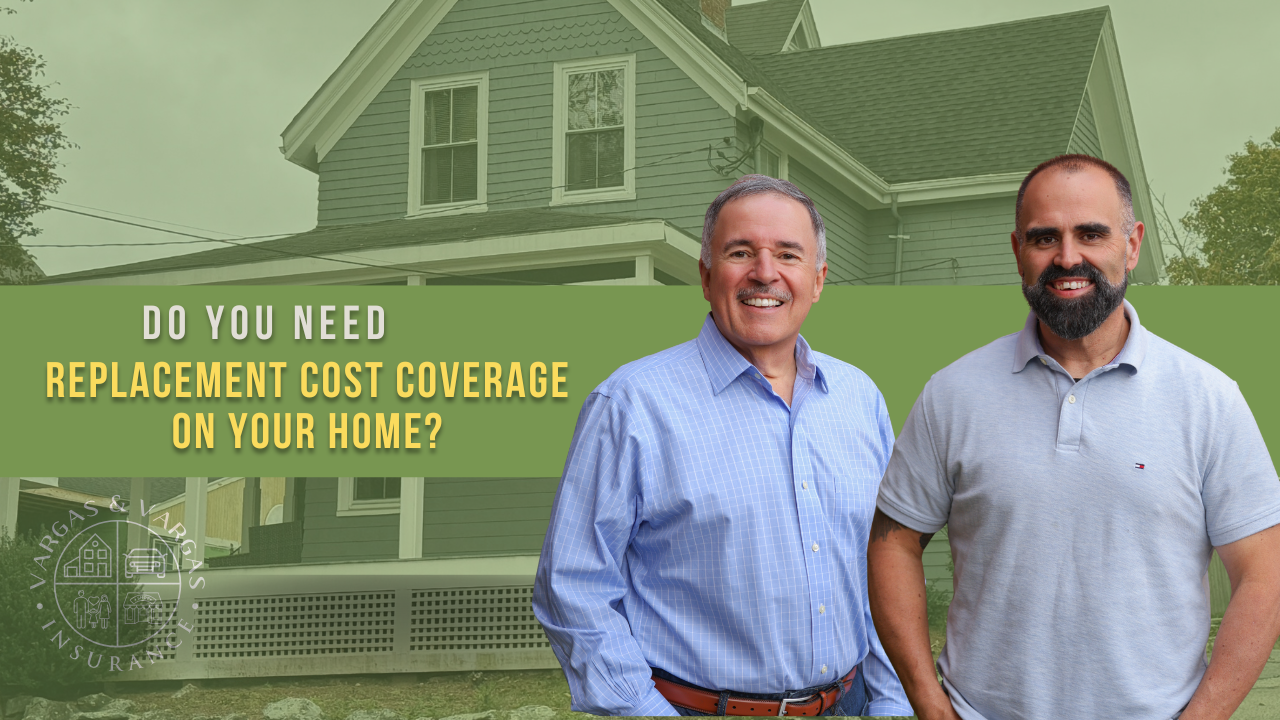Massachusetts Insurance Learning Center
Practical insurance tips for Massachusetts
Your trusted Massachusetts resource for clear, helpful insurance advice. From home and auto to life and business coverage, we break down what you need to know—no jargon, just answers. Explore tips, FAQs, and expert guidance to help you make smart, confident insurance decisions here in Massachusetts.
Learn More. Worry Less.
Here’s what you’ll find:
Insurance can feel complicated—but it doesn’t have to be.
Whether you're protecting your home, car, business, or family, the best first step is understanding how insurance really works. Our Learning Center breaks down complex topics into plain English so you can make informed decisions with confidence.
- Home & Auto Insurance Tips – Learn what your policies really cover and how to avoid common gaps.
- Business Insurance Basics – Discover what coverage your business needs (and what it doesn’t).
- Life Insurance Guidance – Understand your options, what to consider, and how to plan ahead.
- Claims & Coverage FAQs – Get answers to real-life insurance questions, anytime.
- Expert Advice – Stay updated with insights that help you save money and reduce risk.
Have a specific question? Just ask—we're always here to help.
Recent Articles
-
Do You Need Replacement Cost Coverage on Your Home?
If your bank or mortgage company doesn’t require replacement cost coverage, it’s natural to wonder whether you really need it. Many Massachusetts homeowners ask the same question, especially when...Read more -
Massachusetts Deep Freeze Survival Guide: How to Protect Your Home from Extreme Cold and Prevent Burst Pipes
🧊 This Week’s Deep Freeze: A Wake-Up CallForecasts show temperatures dropping well below 20°F, with wind chills reaching dangerous lows across Massachusetts. These conditions create the perfect...Read more -
What Your Condo Insurance Doesn’t Cover—And Why You Need Personal Liability & Medical
If you own a condo, your association has a master insurance policy covering the building structure and common areas. However, this does not protect your personal belongings or your unit's interior....Read more -
Understanding the 80% Replacement Cost of Your Dwelling
When dealing with home insurance, you may come across terms that seem technical and confusing. One such term is the "80% replacement cost" of a dwelling, which is crucial in determining how much...Read more -
What Does Your Condo Insurance "Really" Cover? (Hint: It’s Probably Not What You Think)
Are You Assuming Your Condo’s Master Policy Covers Everything?Most condo owners believe the association’s master insurance policy will take care of any damages to their unit. But what if you...Read more -
2026 Auto Insurance Outlook for Massachusetts
Auto insurance rates in Massachusetts are still higher than many drivers expected heading into 2026, but the good news is that the rapid increases of recent years are beginning to calm. While...Read more -
Understanding Homeowners Insurance in Massachusetts: An Educational Guide
Are you confident about what your homeowners insurance policy actually covers? Understanding your policy is crucial, especially when nature throws unexpected challenges like snowstorms or fires...Read more -
What to Do If You Receive a Notice from Mass Property About Your Replacement Cost
Massachusetts homeowners insured through the Massachusetts Property Insurance Underwriting Association (MPIUA)—commonly called Mass Property—may occasionally receive a notice stating that the...Read more
More Articles
By carlos vargas
•
November 21, 2025
If someone hits your car and drives off, it’s called a hit and run . Imagine leaving the grocery store to find your bumper smashed with no note or witnesses. It’s not just the damage that’s frustrating; it’s the uncertainty about what to do next. Why Are Hit & Runs Confusing? Many drivers aren't sure what to do because we aren’t often taught how insurance works for these situations. But the more you know, the more protected you’ll be. At Vargas & Vargas Insurance , we guide drivers through hit and run claims, breaking down the process in simple terms. Key Questions Answered: What is a hit & run under Massachusetts law? What auto insurance helps in this situation? Will your premium go up? What immediate steps should you take? What Is a "Hit & Run"? A "hit and run" involves another driver damaging your car or injuring you and leaving without giving their info. It could happen in a parking lot, on the street, or even at home. Massachusetts law requires you to report it and file a claim. Coverage That Helps in a Hit & Run Your auto policy can help—if you have the right coverage. Uninsured Motorist Coverage (UM/UIM): Essential for covering injuries to you or passengers. Collision Coverage: Covers car damage but requires you to pay the deductible. Note: Massachusetts is a no-fault state , needing collision and/or UM coverage for protection. Will Your Insurance Rates Rise? It depends. If considered a not-at-fault accident, rates might not increase. However, lack of a police report or a history of claims might affect rates. Reporting it properly is crucial. What Actions Should You Take? Call the police immediately to file a report. Take photos of all damage and surroundings. Seek witnesses or security camera footage. Contact your insurance agent for advice on filing a claim. Keep all records , like police reports and photos. The Bottom Line You can't control reckless drivers, but you can control your preparedness. Here's what you need to know: Have collision and uninsured motorist coverage for protection. A police report is essential. Your agent is your best ally for making claim decisions. If you’ve returned to your car to find damage without a note, you know the stress. Now you know the steps to take and the protections you need. At Vargas & Vargas Insurance , we’re here to make this simple and stress-free. Unsure if your policy protects you from a hit & run? Call us at 617-298-0655 . Let’s ensure you’re covered before it happens.

By carlos vargas
•
November 21, 2025
In this post, we'll guide you through what happens when someone is injured on your property, how personal liability insurance can provide protection, and the steps you should take immediately if an accident occurs. By the end, you'll understand common scenarios that trigger personal liability coverage, what's included (and not included) in a standard policy, how claims are managed, and practical tips to protect yourself both before and after an accident. Understanding Personal Liability Insurance Personal liability insurance is designed to protect you financially if you are found legally responsible for someone’s injury or damage to their property. Typically, this coverage is part of your homeowners or renters insurance policy. If an incident occurs on your property and you’re held responsible, your personal liability insurance can help cover: Medical expenses for the injured person. Legal defense costs if you’re sued. Settlement or judgment amounts awarded to the injured party. Without this coverage, you could face out-of-pocket expenses which could amount to thousands or even hundreds of thousands of dollars, depending on the situation. Common Injury Scenarios on Your Property Personal liability coverage may be applicable in situations like: A guest slipping on an icy walkway. A child falling off a swing in your backyard. A delivery driver tripping over a loose step. A neighbor’s fence being damaged by a tree falling from your yard. Accidents can happen even if precautions are taken, and unfortunately, being "careful" doesn't automatically shield you from legal or medical bills. What’s Not Covered It's crucial to understand that personal liability insurance doesn't cover everything. Most policies exclude: Injuries to you or household members. Intentional acts causing harm. Certain high-risk situations, such as injuries from business activities conducted at home (unless you have separate business liability coverage). Understanding these exclusions can prevent surprises and the frustrations often accompanying a denied claim. What Happens After an Injury on Your Property If someone is injured on your property: Get medical help immediately — the priority should be the person’s safety and well-being. Document the incident — take photos, collect witness statements, and record all details. Notify your insurance company — report the incident promptly, even if unsure whether the injured party will make a claim. Avoid admitting fault — stick to the facts when speaking with the injured person and your insurer. Once a claim is filed, your insurance company will: Investigate the incident. Determine whether your policy covers the claim. Handle negotiations, settlements, or defense in court if necessary. How to Protect Yourself Before an Accident Happens While insurance covers the unexpected, prevention is better than reaction. Reduce your risk by: Keeping walkways clear of ice, snow, and clutter. Repairing loose steps, handrails, and flooring. Properly maintaining landscaping and trees. Providing adequate lighting for entrances and pathways. Regular maintenance not only keeps your property safe but shows responsible behavior if a claim is filed. The Role of Your Insurance Broker An experienced insurance broker can help you: Review your policy to ensure adequate liability coverage limits. Clarify exclusions so you understand what's not covered. Guide you through the claims process if an injury occurs. Suggest umbrella insurance for additional liability protection beyond your standard policy limits. Having a broker means you aren't navigating these situations alone — you'll have someone familiar with your policy advocating for you. The Bottom Line Accidents can occur anywhere to anyone at any time. If someone gets hurt on your property, personal liability insurance can safeguard your finances, cover legal costs, and help manage the situation professionally. The key is understanding how your coverage works before you need it. This involves knowing your policy limits, understanding exclusions, and ensuring you have sufficient protection in place. Additional Resources: Insurance Information Institute – Understanding Liability Coverage NAIC – Consumer’s Guide to Home Insurance

By carlos vargas
•
November 21, 2025
If you've recently opened your mail and found a notice from LexisNexis, you might be asking: What is this, and why did I get it? Don't worry — you're not the only one. Many are surprised by the amount of information LexisNexis collects and how it can impact their insurance rates and financial life. What is LexisNexis? LexisNexis functions as a nationwide consumer reporting agency, akin to credit bureaus like Experian, TransUnion, and Equifax. However, instead of solely focusing on credit information, LexisNexis compiles a broader array of personal and public data, such as: Insurance claims history (CLUE reports) Driving records and violations Property ownership and mortgage details Court filings, liens, and public records Identity and contact information Insurance companies, lenders, and some employers use LexisNexis to evaluate your risk profile. Therefore, the accuracy of this report can significantly affect your insurance premiums, coverage eligibility, and loan approvals. Why Did I Receive a Notice from LexisNexis? Typically, you’ll receive a notice from LexisNexis when an insurance company, bank, or other business has accessed your LexisNexis information to make a decision about you. For instance, when applying for auto or homeowners insurance, the company may have reviewed your LexisNexis report to check your claims history. Legally, if this information influenced your pricing or eligibility, you must be notified. Receiving such a notice doesn't necessarily mean there's an issue; it simply indicates that LexisNexis data was used during the decision-making process. Why Accuracy Matters Insurers rely on LexisNexis reports to determine your rates, so even minor inaccuracies can cost you money. An incorrect claim, a misreported accident, or outdated personal information could result in higher premiums. That's why it's crucial to know what's in your file and correct any inaccuracies. How to Check Your LexisNexis Report Under the Fair Credit Reporting Act (FCRA), you have the right to request a free copy of your LexisNexis Consumer Disclosure Report once every 12 months. Here’s how: Request online: Visit LexisNexis Consumer Center Call by phone: Speak with a representative at LexisNexis Risk Solutions Consumer Center at 1-888-497-0011 Review carefully: Examine your claims history, driving record, and personal information for accuracy. Dispute errors: If you spot any errors, file a dispute with LexisNexis for investigation and correction. Next Step Before obtaining quotes from several insurance companies, ensure the accuracy of your LexisNexis file. Contact LexisNexis today to review your report. If you have questions, reach out to us. We’ll guide you through the process and help ensure that your insurance premium reflects your true risk profile, not a reporting error. 👉 Request your report here ⭐ Final Takeaway Checking your LexisNexis file could save you frustration, time, and money. Ensure your record is correct before shopping for insurance to secure the fairest rate possible.

By carlos vargas
•
November 21, 2025
Shouldn’t your rate be based only on your own driving habits? These are questions we hear often from couples reviewing their auto policy. The answer lies in how insurance companies assess risk — and it might surprise you. In this article, we’ll explain why your spouse’s driving record can impact your premium, how insurers calculate household risk, and what steps you can take if their record is driving up your costs. Let’s break it down. Insurance Companies Rate by Household — Not Just Individual Drivers Even if you’re the primary driver and the policy is in your name, insurers look at the driving history of everyone in your household. Why? Because insurance companies assess the overall risk of your policy — not just the individual behind the wheel. If someone in your home has access to the vehicles listed on your policy, the insurer assumes there’s a chance they may drive them at some point. That means your spouse’s speeding tickets, accidents, or past claims become part of the risk profile for your policy — even if they don’t drive your car regularly. This practice is common and confirmed by leading consumer advocacy groups like the Insurance Information Institute (III), which notes that insurers base rates on all licensed drivers in the household, not just the primary policyholder. Married Couples Often Share Coverage If both you and your spouse are licensed drivers living at the same address, you’re likely to be rated on the same policy — unless one is explicitly excluded. Here’s how this usually plays out: If you each have your own car but share a policy, both of your driving records are factored into the premium. If only one vehicle is insured but both spouses are listed as drivers, both records count. Even if your spouse rarely drives, insurance companies may still rate based on their history unless they’re formally excluded from the policy (which comes with its own risks). Bottom line: If your spouse has a history of traffic violations or claims, it can raise the total premium for your household. It’s All About Risk — and Risk Affects Premiums Insurance is about predicting risk — how likely it is that someone will file a claim. The more risk an insurer sees, the more they charge to offset potential payouts. Here are some common red flags that can increase your premium: Multiple speeding tickets At-fault accidents DUI or reckless driving Lapses in coverage or license suspensions If your spouse’s driving record includes any of these, insurers may see your household as a higher-risk account — which means you’ll pay more, even if your own record is clean. Can You Avoid Being Affected by Their Record? Sometimes. You have a few options, depending on your situation: Driver Exclusion: Some states and carriers allow you to exclude a household member from your policy. That means they cannot drive the insured vehicles — ever. In return, their driving record won’t impact your rate. But beware: if they do drive and get into an accident, your claim could be denied. Separate Policies: You could each carry your own insurance policy, but this often isn’t cost-effective. Most insurers offer better rates for multi-car or multi-driver policies, even when one driver has a less-than-perfect record. Shop Around: Some insurers are more forgiving than others. A good independent insurance agent can help you compare carriers and find one that offers a more competitive rate for households with mixed driving records. What You Can Do Next If your spouse’s driving record is affecting your premium, talk to your insurance agent. They can help you: Understand how much impact it’s having Explore whether exclusion is an option Requote your policy with other carriers Look for discounts to offset the cost Sometimes, just waiting it out is the best move. Most violations only stay on a driving record for 3 to 5 years, and your premium could go down once those issues fall off. In Summary: You're Rated Together, Even if You Drive Separately It may feel unfair that your clean driving record is overshadowed by your spouse’s history, but from the insurer’s point of view, it’s about protecting against who might drive — not just who usually drives. Insurance companies rate by household risk — not individual perfection. Understanding how this works can help you make smarter choices and potentially lower your rate. If you have questions about your policy or want to explore other options, we’re here to help. At Vargas & Vargas Insurance, we work with multiple carriers and tailor coverage for your unique situation — no matter who’s behind the wheel.

By carlos vargas
•
November 21, 2025
You've planned every detail of your home remodel — contractors, permits, budgets — but have you notified your insurance company? Whether you're renovating your single-family home or upgrading a condo, most homeowners aren't aware that skipping this step could leave them underinsured, at risk of denied claims, or facing unexpected out-of-pocket costs. Even minor upgrades can impact your policy. So, do you really have to notify your insurer every time you renovate? The short answer is yes—especially if the project affects your home’s value or risk profile. Let’s walk through when and why you need to update your insurance, how it affects your premium, and the important step condo owners should never skip. Why Renovations Should Be Reported to Your Insurer Home upgrades change more than just appearance—they also impact your home’s insurability. When you renovate, you're typically increasing your home’s replacement value — the cost it would take to rebuild in case of loss. Insurance companies use this figure to calculate your premium. If your policy is based on the pre-renovation value and disaster strikes, your payout might fall short. Some projects also introduce new risks. For example, a finished basement might be more vulnerable to flooding. A deck, pool, or detached garage introduces potential liability concerns. By notifying your insurance provider before and after your remodel, you ensure that your coverage reflects your current home—not a past version of it. Which Renovations Require You to Contact Your Insurance Company? Any project that increases your home’s value, square footage, or risk exposure should be reported. Examples include: Room additions or garage builds Kitchen and bathroom upgrades Finished basements or attic conversions Major system overhauls (plumbing, HVAC, electric) Swimming pools, hot tubs, or trampolines Home office setups or business-use conversions Even seemingly small improvements like high-end flooring, built-in cabinetry, or smart home systems can tip the scale. While repainting or replacing curtains might not trigger a policy change, it’s always wise to check. Special Note for Condo Owners: Update Your HO-6 Policy If you live in a condo, you absolutely must update your HO-6 policy if you do any renovations. Why? Your condo association’s master policy generally only covers the building’s common areas and original fixtures. That means any improvements you make—like custom flooring, updated lighting, or a luxury kitchen—are your responsibility to insure. Failing to notify your insurer after a renovation could leave your upgrades completely unprotected. To be safe, review your condo association’s bylaws and then work with your insurance agent to adjust your HO-6 policy accordingly. What Happens If You Don’t Notify Your Insurer? Not telling your insurance company about a remodel could result in denied claims, coverage gaps, or even policy cancellation. Let’s say you finish your basement and later experience water damage. If your policy was never updated, your provider could say that space wasn’t part of the covered home, potentially leading to a denial of the claim. In some cases, failure to disclose major changes can be viewed as misrepresentation—giving your insurer the right to cancel the policy entirely. Will Your Premium Increase After Remodeling? Not always. Some renovations can actually lower your insurance rate. Here’s how: A new roof or electrical system might reduce premiums by improving safety. A kitchen or bath remodel might increase premiums due to higher replacement costs. A pool or home office might increase liability exposure, raising costs slightly. The impact depends on the type of upgrade and how it affects your home’s risk profile. Either way, your goal isn’t necessarily to avoid premium changes—it’s to stay fully protected. What Should You Do Before and After a Renovation? The best move is to involve your insurance agent early—and again once the work is complete. Here’s a smart checklist: Notify your agent before starting any major renovation. Understand your policy—what’s covered, what’s not. Ask about temporary coverage during construction (like builder’s risk). Request a policy review after the project to update the replacement cost. Ensure liability coverage is appropriate if you added risk-prone features. And if you’re unsure about any of this, it’s always best to reach out to us directly. Our team can review your situation, guide you through policy adjustments, and make sure you’re protected from the start of your renovation to the finish. Remodeling? Make Sure Your Insurance Keeps Up At the end of the day, home renovations are exciting—but come with important responsibilities, especially where insurance is concerned. This is especially true if you’re doing high-value work or own a condo with an HO-6 policy that doesn’t yet reflect your updates. Now that you understand the importance of keeping your insurer in the loop, it’s time to make sure your coverage matches your home’s reality. Still unsure if your remodel requires a policy update? Let us help. 👉 Contact our insurance experts today to get clarity on your coverage, so you can build with confidence.

By carlos vargas
•
November 21, 2025
Is the Massachusetts RMV Eating Up Your Time (and Patience)? Frustrated by the confusing steps, paperwork, and endless lines just to register your car? There’s a faster, simpler way to handle vehicle registration—without spending half your day at the RMV or guessing if you brought the right forms. In this article, you’ll learn exactly how to register your vehicle in Massachusetts in the quickest, most efficient way possible—whether you're doing it yourself or through a dealership. Here’s the good news: Yes, we work directly with the Massachusetts RMV through the Electronic Vehicle Registration (EVR) Program. This means we can issue plates, transfer titles, and complete registration right from our office — no RMV visit required. In this article, we’ll explain how this works, what services we can complete on your behalf, and why this matters for your buying experience. What Is the MA RMV EVR Program? The Electronic Vehicle Registration (EVR) program is a partnership between the Massachusetts Registry of Motor Vehicles (RMV) and approved businesses — like us — that allows for direct processing of vehicle transactions. This includes: Issuing new license plates Transferring existing registration and titles Completing renewals and plate swaps Collecting all required state fees at the point of sale We’re a fully authorized EVR Participant, which means when you buy or lease a vehicle with us, you can skip the RMV entirely. What Does This Mean For You? Convenience and time savings. That’s the main benefit. Instead of taking your paperwork to a crowded RMV office, we process everything in-house. You leave our dealership with your vehicle fully registered and plated, legally ready for the road.. You also get the peace of mind knowing that: All paperwork is submitted accurately and instantly No waiting days or weeks for the RMV to mail your plates You avoid costly mistakes or delays from handling it on your own Is This Available for Every Customer? In most cases, yes. As long as the vehicle meets state registration requirements and you provide the proper documents (like proof of insurance and ID), we can handle the registration for: New vehicle purchases Lease agreements Plate transfers from old vehicles Certain out-of-state transfers If there’s ever a situation where you do need to visit the RMV, we’ll let you know upfront and walk you through exactly what to expect. Why We Partnered With the MA RMV This is part of our commitment to providing a frictionless car buying experience. We know that the RMV process is one of the biggest pain points for customers — so we’ve removed it from the equation wherever possible. You shouldn’t need to make another trip or stand in another line just to drive your new car home. With the EVR program, you don’t have to. You came here wondering if we work directly with the MA RMV — now you know we do, and that we’ve made your life easier by doing so. Want to learn more about what to bring, how fast the process is, or what types of plates we can issue? Check out the official EVR Program Guide from the Mass RMV, or contact us directly and we’ll walk you through everything.

By carlos vargas
•
November 21, 2025
What’s the First Thing I Need to Know About Insurance and Learner’s Permits in Massachusetts? As soon as your child gets their learner's permit, you might wonder: "Are they automatically covered under my auto insurance?" It's a smart—and necessary—question, and the answer isn’t as straightforward as "yes" or "no." Do I Need to Call My Insurance Company Right Away? Maybe. Maybe not. But if your child will be driving your vehicle—even with a learner’s permit—you need to understand the limitations and expectations of your current coverage. Ignoring this step can lead to costly mistakes in the event of an accident. What’s the Real Story Behind Learner's Permit Coverage in Massachusetts? In this article, we’ll clarify how coverage works for permitted drivers in Massachusetts. You'll learn when they’re typically covered, when you must add them to your policy, and the common mistakes parents make that can lead to denied claims. Here’s What You’ll Walk Away With: By the end of this article, you’ll know whether your child is currently protected, what actions (if any) you need to take, and how to avoid insurance gaps as they begin their driving journey. Yes, Most Permitted Drivers in Massachusetts Are Covered—But There’s a Catch In Massachusetts, a child with a learner’s permit is typically covered under their parent or guardian’s auto insurance policy. That’s the good news. If your teen is driving your insured vehicle with your permission and under your supervision—as required by law—they are usually considered a “permissive user” under your existing policy. However, this default coverage relies on the assumption that: The child is living in your household They are not yet fully licensed They are not using the car for any commercial or unsanctioned use Important: Some insurance companies may still require you to list your child on the policy even as a permit holder, especially once they start driving regularly. When You Do Need to Notify Your Insurance Company The moment your child becomes a regular driver of any of your vehicles, your insurer needs to know. In most cases, carriers don’t require you to list a permitted driver on your policy immediately. But if your child is practicing frequently or about to test for their full license, it’s time to get in touch. If you don’t? You risk: Voiding your coverage if an accident occurs Delays in claim processing Unexpected premium increases Some insurers also offer discounts or incentives when you proactively add your permitted driver early, especially if they’ve taken a certified driver’s education course. What Happens After They Pass the Road Test? Once your child becomes a fully licensed driver, you must add them to your policy. In Massachusetts, insurance companies require all licensed household members of driving age to be disclosed on your policy. Failing to do so can result in denied claims, policy cancellation, or uncovered accidents. You’ll also need to decide: Will they drive your car, or have their own? Do they need comprehensive and collision coverage? Should you raise your liability limits? These decisions affect not just your premiums but your peace of mind. Common Mistakes Parents Make with Permitted Drivers Don’t fall into these avoidable traps: Assuming your insurer doesn’t need to know — Each company has different rules about when a permitted driver should be listed. Letting your child drive a car that isn’t listed on your policy — If your policy only covers specific vehicles, make sure they’re practicing in one of them. Waiting until after an accident to ask questions — At that point, it's too late to fix it. Final Thoughts: Take These Next Steps If you’ve been wondering, “Is my child covered now that they have a learner’s permit?”—you’re not alone. Most parents share the same uncertainty. While Massachusetts generally allows coverage for supervised permit holders under your policy, every insurance provider has slightly different requirements. Before your child gets too comfortable behind the wheel, here’s what to do next: Review your auto policy or call your insurance agent today. Ask about rules specific to learner's permit drivers. Get ahead of any paperwork or policy changes before their road test. Your next step is to read: “What Happens to My Insurance When My Teen Gets Their License?” so you can fully prepare for the transition from learner to licensed driver. Or better yet— book a free policy review with our team to ensure your family is fully protected without overpaying.

By carlos vargas
•
November 21, 2025
Why is My Mortgage Payment Going Up After the First Year? Why did I have to pay the first year’s premium if I have an escrow account? We’re going to clear up the confusion around who pays what, when, and why when it comes to homeowners insurance and escrow. By the end of this article, you’ll understand exactly what your lender pays, what you’re responsible for, and how insurance payments work during and after closing. You’ll also know the right questions to ask your lender and insurance agent next. Understanding Escrow and Your Insurance Premium: Who Pays What? Let’s start with the basics: if you’re paying into an escrow account, your mortgage lender uses those funds to cover certain recurring homeownership costs — like property taxes and homeowner's insurance — on your behalf. However, there’s one big exception that catches many homeowners off guard: 👉 You must still pay your first-year insurance premium out-of-pocket. Why doesn't the bank pay my first year's premium? Because the bank doesn't yet have your escrow funds when you're closing on your home. At closing, you typically prepay your first 12 months of homeowners insurance. This payment goes directly to your insurance company — either from you or sent by the closing attorney. The lender begins collecting escrow for next year’s renewal premium starting with your first mortgage payment. So, even though you're making monthly payments that include insurance, those payments are building up in escrow to be used for the following year's premium. What Exactly is Escrow Covering, Then? Escrow is a forward-looking system — it's always planning for what's next. So: Year 1: You pay your insurance premium directly. Months 1–12 of mortgage payments: A portion goes into escrow. Year 2: The bank uses the escrow account to pay your policy renewal. This cycle continues each year: your lender pays your annual premium using the escrow funds you've accumulated over the prior 12 months. Important: If your insurance premium increases (which is common), your monthly escrow amount will likely go up too — and that’s why your mortgage payment may change after the first year. What if I Thought the Bank was Covering it? You’re not alone. This is a very common misconception, especially for first-time homebuyers. Here's what usually happens: The loan officer may say your insurance is “escrowed” — which is true, but only after the first year. The homebuyer interprets this as, “The bank is paying my insurance now,” which isn’t accurate. Confusion sets in when you’re asked to pay the insurance premium upfront. If this sounds like your situation, don’t worry — you’re doing exactly what you should by looking for answers. What Are Your Options for Paying the First-Year Premium? You have two common choices, and both are valid: Pay your insurance provider directly before closing. Have the premium paid at closing — the closing attorney mails a check to the insurance company on your behalf. Your insurance provider can issue the policy binder (proof of insurance) with either option. 👉 Just make sure to coordinate with your loan officer and your insurance agent early in the process. How to Avoid Surprises To keep things smooth: Clarify with your loan officer: “When does escrow begin paying my insurance?” Ask your insurance broker: “Will I need to pay the first-year premium upfront?” Plan for that first premium so it’s not a surprise at the closing table. So, What Should You Do Next? Your next step is to read and watch our video "The Essential Guide to Home Insurance Escrow" so you can confidently plan for insurance payments and avoid unexpected costs after closing. Final Thoughts: You're Not Alone in This At the end of the day, many homeowners are confused when they’re told they have to pay for their insurance premium — even though their mortgage includes escrow. This is especially frustrating when you’re juggling so many costs at closing. Now that you’ve learned how escrow accounts work — and what your lender pays vs. what you’re responsible for — you’re in a stronger position to ask the right questions and avoid surprise costs. Whether you’re preparing to close or just trying to make sense of your mortgage statement, our team is here to help guide you through it. 👉 Still have questions? Contact our team today — we're happy to review your policy and help coordinate with your lender.

By carlos vargas
•
November 21, 2025
In this post, we'll guide you through the steps to challenge a denied insurance claim — and win. You'll learn why denials happen, what your rights are, and how to utilize available resources, including your insurance broker, to overturn the decision. By the end, you'll have a clear plan for reviewing your policy, gathering evidence, filing an appeal, and getting expert help to strengthen your case. Why Claims Get Denied Insurance claim denials can occur for several reasons, such as: Policy exclusions: The damage or loss you're claiming might not be covered under your policy. Lapsed coverage: Your policy may not have been active at the time of the incident. Incomplete documentation: Missing forms, insufficient evidence, or errors in your claim submission. Disputes over cause: The insurer may argue that the loss's cause doesn't meet coverage terms. Late filing: Waiting too long to file a claim. Some denials are legitimate, while others arise from misunderstandings, errors, or overly strict interpretations of policy language — all of which can be challenged. Understanding your policy, including its exclusions, before a loss can prevent frustration and the negativity often associated with a denied claim. The more you know upfront, the better prepared you'll be. Step 1: Understand the Denial When your claim is denied, you'll receive a denial letter outlining the reason. Read it carefully to find: The exact policy language cited. The insurer’s explanation for why the claim doesn't meet terms. Any deadlines for appeal. Understanding the reasoning will help decide if you have grounds to contest the decision. Step 2: Review Your Policy Your insurance broker can assist here. Compare the denial letter with your policy's coverage terms. Sometimes, the insurer’s interpretation is narrower than what the policy states. Check for: Coverage definitions that might favor you. Ambiguous language — often interpreted to benefit the policyholder. Endorsements or riders that may extend coverage. Step 3: Gather Evidence The more documentation you have, the stronger your appeal will be. Consider including: Photos or videos of damage or loss. Receipts or invoices for repairs or replacements. Police reports or incident reports. Expert assessments or contractor estimates. Your broker can help organize this evidence to directly address the insurer’s stated reason for denial. Step 4: File an Appeal Most insurers have a formal appeal process. Submit your appeal in writing, including: A clear statement that you’re appealing the decision. The denial letter and your policy for reference. Your evidence, organized and explained. Any relevant laws, regulations, or policy clauses supporting your claim. Deadlines are crucial. Missing the appeal window could end your chance to challenge the denial. Step 5: Get Expert Help This is where your insurance broker proves invaluable. Brokers work for you, not the insurance company, and they have the experience to: Identify weaknesses in the insurer’s reasoning. Communicate directly with the claims department on your behalf. Escalate the matter if needed, even to regulators. In some cases, involving an independent appraiser, public adjuster, or attorney may be beneficial — and your broker can connect you with trusted professionals. Why You Shouldn’t Go It Alone When your claim is denied, emotions run high. It's easy to overlook important details or deadlines. Your broker acts as a guide and advocate, ensuring that the appeal is thorough, timely, and positioned for success. Many policyholders don’t realize that brokers can re-open discussions, push for re-evaluation, and negotiate settlements, all without you navigating the insurance company’s bureaucracy on your own. The Bottom Line A denied insurance claim isn't the end of the story. By understanding the denial reason, reviewing your policy, gathering strong evidence, and utilizing the appeal process — especially with your broker’s support — you can significantly increase your chances of receiving the coverage you deserve. Knowing your policy and its exclusions ahead of time will help you avoid unpleasant surprises and equip you to handle disputes confidently. If your claim has been denied, don’t wait or fight it alone. Get your broker involved immediately. We can review your case, find the best approach, and advocate on your behalf to achieve the outcome you deserve. 📞 Contact us today to discuss your denied claim and start building a winning appeal. Additional Resources: NAIC – How to File an Insurance Complaint USA.gov – How to Appeal a Health or Auto Insurance Claim Denial

By carlos vargas
•
November 21, 2025
We often hear this question: Why does homeowners insurance seem to get more expensive every year? And how can Massachusetts residents reduce their premiums without cutting corners on coverage? If you've ever looked at your home insurance renewal and thought, "Why did this go up again?", you're not alone. Many Massachusetts homeowners are overpaying by hundreds — sometimes more — without realizing there are practical, proven ways to lower their costs. In this article, we’ll walk you through 14 strategies that can help you save $500 or more on your homeowners insurance — without sacrificing protection or peace of mind. Bundle Your Policies This is often the biggest savings opportunity. When you combine your auto and home insurance with the same provider, discounts can be significant — sometimes up to 25%. Raise Your Deductible (Strategically) If you increase your deductible from $500 to $1,000, you could lower your premium by 10–20%. Just make sure you have the funds set aside in case of an emergency claim. Improve Your Home Security Insurance carriers love it when you make your home safer. Installing monitored alarms, cameras, deadbolts, and smart home devices can earn you discounts. Maintain a Good Credit Score Yes, credit matters. In Massachusetts, your credit isn’t used directly to set rates, but carriers may still use credit-based insurance scoring as part of your risk profile. Stay Claims-Free Every claim you file stays on your record. A clean claims history over five years often leads to loyalty discounts or lower premiums. Shop Your Policy Every 1–2 Years Loyalty doesn’t always pay. Rates can fluctuate due to underwriting guidelines, so reviewing your policy every couple of years ensures you’re not overpaying. (We do this for you automatically) Install a Water Shutoff System Water damage is one of the costliest types of claims. Systems that detect leaks or automatically shut off water can lead to discounts of 5% or more. Review Your Coverage Annually Do you have too much personal property coverage? Are you paying for riders you no longer need? An annual review helps optimize protection without waste. Ask About Available Discounts Not all discounts are applied automatically. Ask your agent if you qualify for senior, new home, non-smoker, paperless billing, or paid-in-full discounts. Upgrade Your Roof or Electrical System Newer roofs and updated electrical panels lower your risk profile—and many carriers reward those improvements with premium reductions. Avoid Small Claims Filing for every minor issue can trigger rate hikes or dropped coverage. Sometimes it pays to handle smaller repairs out of pocket. Work With an Independent Insurance Broker Independent agents compare policies across multiple carriers to find you the best coverage and price—something captive agents can’t do. Join a Group or Association Some insurers offer group discounts through employers, alumni organizations, or unions. Ask about affinity programs. Affinity Group / Program Eligible Members Discount on Homeowners Insurance Notes/Insurer Examples UMass Boston Alumni Insurance Program UMass Boston alumni Varies (auto/home discount) Farmers, Liberty Mutual UMass Amherst Alumni via AMBA / USI Affinity UMass Amherst alumni Group rates on home & auto USI Affinity program Northeastern Alumni Insurance Discount Northeastern University alumni Discount on home and auto Liberty Mutual USI Affinity Collegiate & Alumni Programs Alumni of ~200+ colleges/universities Group rates on home & auto Multiple carriers Travelers Insurance Affinity Discounts Employer groups, credit unions Home & auto discounts Call Travelers to check eligibility GEICO Organizational Discounts Members of recognized associations Home & auto discount offers Check MA‑specific list via GEICO MAHA HomeSafe Program Graduates of MAHA Homeowner 201 or Condo 202 7–10% discount with participating insurers MAHA‑partner insurance companies, like: Arbella, Harleysville Worcester, Commerce/MAPFRE, Liberty Mutual, Quincy Mutual, Safety 14. Choose the Right Insurance Company Not all carriers rate risks the same way. A company that’s expensive for your neighbor might be cost-effective for you. Rates vary widely—shop smart. Final Thoughts: You Can Save Big—But You Need to Know Where to Look If you’re like most Massachusetts homeowners, chances are you’re leaving money on the table when it comes to your homeowners insurance. By taking even a few of the steps above, it’s not uncommon to save $500 or more annually. Remember: Insurance is about protecting your most valuable assets—but it shouldn’t drain your wallet in the process. What to Do Next Are you wondering which of these savings apply to your current policy? Or maybe someone you know could use a fresh look at their insurance options? 📩 Let us help. Reach out and let’s see how we can save you—or someone you care about—money on home insurance today.

By carlos vargas
•
November 21, 2025
What happens if someone trips, slips, or falls on your property Whether it’s a friend, delivery driver, or neighbor, accidents can happen fast—and they’re almost always unexpected. One minute you're chatting on the porch, the next someone’s on the ground in pain. After making sure they’re okay, one big question usually follows: “Am I liable for this?” What are you responsible for—and what could it cost you If someone is injured on your property, you could be held financially responsible , even if it wasn’t intentional. Medical bills, lost wages, legal fees—these costs can escalate quickly. And many homeowners are surprised to learn that a simple accident can lead to a personal injury claim… or worse, a lawsuit. That’s where personal liability insurance comes in. Promise: You’re about to learn what personal liability coverage does (and doesn’t) protect you from. In this article, we’ll walk through what personal liability insurance actually covers, what steps you should take if someone is injured on your property, and how to make sure you’re not exposed to major financial risk. By the end, you’ll know how to respond to an accident, when to notify your insurance company, and how to avoid coverage gaps that could cost you later. What Is Personal Liability Insurance? Personal liability insurance protects you when someone is hurt or suffers property damage and holds you responsible. This coverage is typically part of your homeowners or renters insurance and includes: Medical expenses for injuries that happen on your property Legal defense fees if a lawsuit is filed Damages awarded if you're found liable It’s designed to protect your financial assets in the event of an accident—not just your home. What Kinds of Accidents Are Covered? Most common household accidents are included, such as: A friend slipping on an icy walkway A child falling down your stairs A delivery driver tripping over a loose garden hose But coverage doesn’t mean unlimited protection. If you were grossly negligent (for example, failing to fix a known hazard), your insurance might not fully cover you. And intentional harm is never covered. What Should You Do if Someone Gets Hurt? Step one: Get medical attention if needed. Even if the injury seems minor, documentation matters. Take these additional steps: Document the scene with photos and notes Get the injured person’s contact info and a statement if possible Notify your insurance provider right away Don’t admit fault—just report what happened These actions help your insurer assess the situation quickly and protect your ability to file a valid claim. Do You Have Enough Coverage? Most policies come with $100,000 in personal liability coverage—but that may not be enough. If a serious injury results in legal action, expenses can easily surpass that. You might want to raise your coverage limit or consider an umbrella policy to add an extra layer of protection. Key Takeaway: Don’t Wait for a Lawsuit to Understand Your Liability Personal liability insurance isn’t just about protecting your property—it’s about protecting your future. Accidents happen, and if someone gets hurt on your property, knowing how to respond (and what your policy covers) can make a world of difference. Have Questions About Your Coverage? If you're unsure whether your current policy offers enough protection, or if you’re not clear on what to do after an accident, we’re here to help. Our team is available to answer your questions and offer guidance whenever you need it. Reach out today to speak with an advisor who can help you feel confident in your coverage and next steps.

By carlos vargas
•
November 21, 2025
What’s going on behind the scenes after you file an insurance claim? After a car accident, natural disaster, or property loss, you're likely feeling overwhelmed—and then, an insurance adjuster reached out to you. They seem friendly, professional, and efficient, but what exactly are they doing? And more importantly, are they working for you… or the insurance company? What are you risking if you don’t understand their role? If you don’t know how insurance adjusters operate, you could unintentionally walk away with less than you deserve. Many claimants unknowingly accept the first settlement offered, assuming it’s fair. Unfortunately, that’s not always the case. A lack of clarity here can cost you thousands—and often does. Our hopes are that after reading this post that you understand how to protect your interests. In this article, we’ll break down exactly what an insurance adjuster does, the common strategies they use, and what steps you can take to secure a fair settlement—even without being an expert negotiator. Whether you’re in the middle of a claim or preparing for the future, this will give you the confidence and clarity you need to move forward. You’ll learn what adjusters look for, how they assess damage, and how to effectively respond. Let’s get started. What Does an Insurance Adjuster Actually Do? Insurance adjusters work for the insurance company—not you. Their primary role is to investigate claims and determine how much the company should pay. They evaluate evidence, interview witnesses, and inspect damage. There are three main types: Staff adjusters (employed directly by insurance companies) Independent adjusters (contracted by insurers) Public adjusters (hired by policyholders—you) Understanding who’s evaluating your claim helps you recognize where their interests lie. Common Adjuster Tactics You Need to Know Many adjusters aim to settle quickly—and cheaply. While not all are manipulative, it's common for them to: Offer fast settlements before the full extent of damage or injury is known Downplay the severity of damage or liability Use complex jargon to discourage questions Pressure you into recording statements that can later be used to reduce your payout These strategies are designed to protect the insurance company’s bottom line. How to Prepare for the Adjuster’s Visit Documentation is your strongest defense. Before meeting with an adjuster, do the following: Take thorough photos/videos of all damage Keep receipts for temporary repairs or replacements Obtain repair estimates from licensed contractors Write a timeline of events while it's fresh in your memory This helps you back up your claim with facts—not just feelings. Should You Hire a Public Adjuster? If your claim is large or complex, it may be worth it. Public adjusters advocate for you and often secure significantly higher settlements. While they typically charge a percentage of the final payout (usually 10–20%), their expertise can pay off—especially if your insurer is being uncooperative. The Bottom Line: Protect Yourself, Not Just Your Property Insurance claims are emotional, but they’re also business transactions. Understanding how adjusters operate gives you power in a situation where it’s easy to feel powerless. Ready to Take Control of Your Claim? After reading this, you now understand what’s happening when an adjuster steps into the picture—and how to prepare for a fair settlement. But don't stop here. Your next step? Read our post on What To Expect When Filing a Home Insurance Claim, to ensure you’re presenting your strongest case from day one. If you're dealing with a claim right now, or simply want peace of mind before the next storm, schedule a call with our team. We’ll walk you through your rights, responsibilities, and the smartest next moves—so you don’t leave money on the table.













